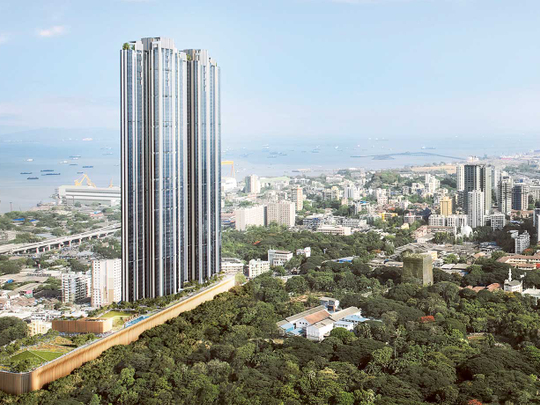
Dubai: For Anand Piramal, real estate development is nothing more than a localised game.
The Executive Director at Piramal Group, one of India’s more upscale focused property developers, ticks off a few points to buttress his rationale behind confining his company’s interests to Mumbai. “Emaar is an international company but 80-85 per cent of its development value is concentrated in one city — Dubai,” said Piramal. “Even in India, one of the biggest names — DLF — has 90-95 per cent concentrated on Gurgaon.
“I believe that a developer can create a large enough business just being confined to one city. The world’s largest developers have shown it [building] is a local game. Chances are if you spread out too much, you might end up being disappointed with the quality of what’s being delivered. It’s best to have your children in one place.”
Spike in demand
That’s why Piramal Group prefers the stability that comes from doing what they know best in a familiar market — Mumbai. A pan-India exposure is not what it is after. (In Mumbai, the Group’s projects include one apartment building in Worli where apartments are going for Rs700 million to Rs800 million (Dh38.6 million to Dh44.2 million). According to Piramal, there has been a spike in demand for properties in the super-premium space of Rs300 million and over.
But is there enough free land remaining in Mumbai to take on sprawling developments. “It’s a fallacy to think Mumbai doesn’t have enough of land. There are too many old structures and slums sitting on prime land. The Port Trust owns thousands of acres of land. There’s so much of potential caught up in these locations. The property market is far from saturation and not going to happen even in 10 years.”
Market sentiment
These are interesting times to be a developer in India, whatever be the business model employed. The clouds that had settled on the property market for two years seem to have abated just that bit. Much of that had to do with the passage of — much heralded and much delayed — laws for the real estate sector. The market sentiment is that it should do enough to get domestic buyers back into the market in sizeable numbers.
“It was a tough period that stretched developers — the problem is that India has so few developers of the highest quality,” said Piramal. “If in the pharma or tech sectors there are Indian companies with $1 billion plus valuations, in real estate it’s just DLF and Prestige. And there’s so much of up and down on those valuations.
“But the [new] regulations will bring in foreign investors — they will feel that as India grows at 8 per cent, real estate will not be held back. It’s such a high-beta business and very much linked to GDP.”
Well before any of the recent set of laws were passed, the Piramal Group was doing quite well, courtesy of two of the biggest names in investment — Goldman Sachs and Warburg Pincus. They invested around $434 million in Piramal Realty. (Another arm, Piramal Fund Management, has Rs239 billion of assets under management as of March 15.)
Approval process
“It was at the time the largest real estate investment since 2008 made in India — that gave us the firepower and the reason why we don’t need to look immediately to raise money,” said Piramal.
“I hope that with the Real Estate Regulatory law the government will improve upon the approval process on new projects. The slowness is the reason why private equity hesitates so much to place funds in real estate. They would much rather go to consumer entities or in technology.
“Yet, there’s a lot of money still waiting in the wings to get into real estate. And with the right approval processes, one can really build a world-class city wisely. That’s what Mumbai needs.”











